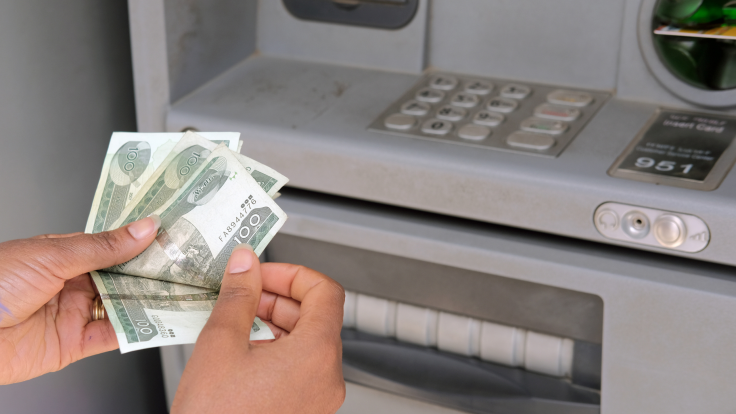
Over the weekend, a glitch affecting the Commercial Bank of Ethiopia led to customers in the East African nation taking out or transferring more money than they actually had in their bank accounts.
As unlimited amounts of money were available to be taken out, many Ethiopians took advantage of the opportunity, with up to £32 million being withdrawn from ATMs or getting transferred to other banks.
CBE president, Abie Sano, revealed in a press conference on Monday that nearly half a million transactions took place during the glitch and most of the culprits involved with taking large amounts of money out were university students.
Many long lines were formed outside of ATMs on campuses early on Saturday morning. More people become aware of the unique situation as the news spread within the student sector through phone calls being made and messages getting sent out.
Police soon came to the scene of the crowded ATMs across the university campuses as they ushered people away and prevented others from taking out large sums of money. After a few hours, CBE halted any transactions from being made by its 38 million account holders in Ethiopia.
Three Ethiopian universities have publicly come out to encourage any students that withdrew money that is not theirs from CBE during the bank's glitch to hand it back. Sano assured anyone that returns money will not face any criminal charges, although it remains to be seen how much of the £32 million withdrawn has been recouped by the 82-year-old bank.
According to an official at Dilla University, there were some students giving up the money they had taken out and were handing it over to the authorities. At Jimma University, one student claimed that no one had handed any money back voluntarily, but that police were present on campus to deal with the matter.
Whilst people who hand money back not belonging to them will not face any penalties; Sano told the BBC that anyone who fails to do so by the week's conclusion will face strong punishment. He said: "There is no way that they can escape because they are digital (transactions), and they are our customers. We know them. They are traceable and they are legally accountable for what they did."
Despite this threat, some students do not want to hand any of the money back, according to an attendant at Addis Adaba University that spoke to the BBC. He commented: "There is a notice posted in our cafeteria warning students to return the money to avoid legal consequences, but I haven't seen anyone doing so. Instead, I have seen posts on TikTok from students vowing and urging others not to return the money at all."
The cause of the glitch was down to maintenance and inspection activities and was not related to any form of cyberattack according to CBE. The bank's customers have been assured that their personal accounts are not vulnerable to any outside threats.
Sano refuted the reports of £32 million being taken out during the glitch, and claimed the figure is much less. The bank president revealed that an audit is required to fully determine how much was taken from CBE as there was legitimate transactions that occurred during the glitch hours.
The Bank of Ireland encountered a similar problem last August as a technical glitch allowed customers to withdraw over £800 even if they did not have that amount in their accounts. This also led to ATMs across the country being swarmed by residents looking to take advantage of their bank's technical problems.







